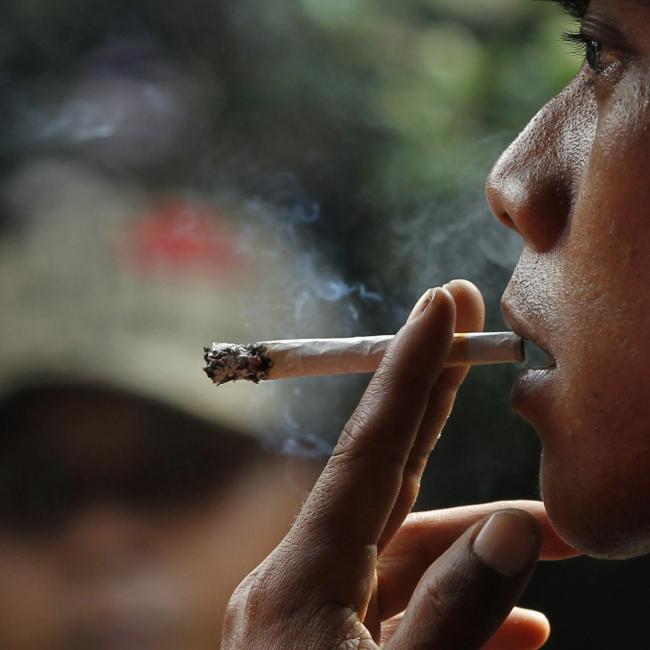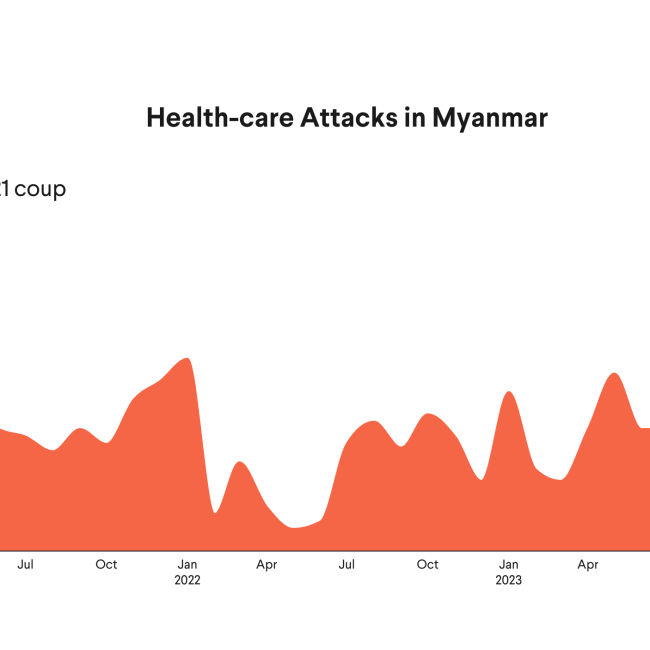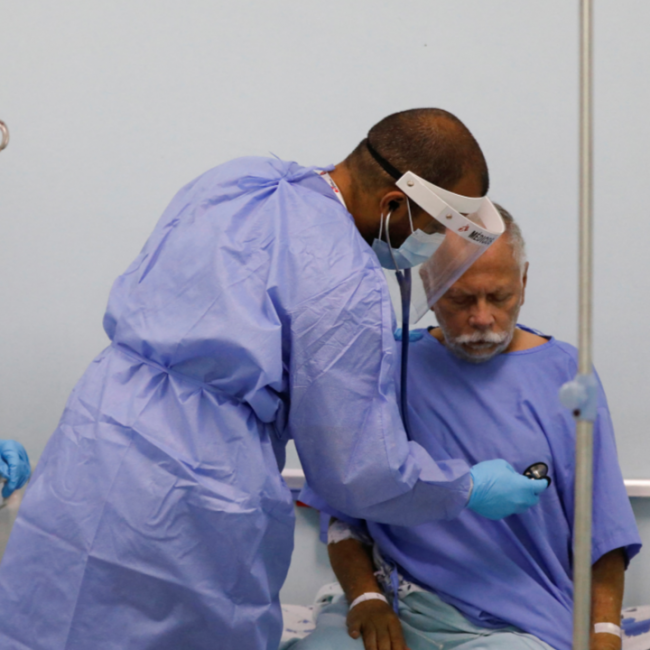
Governance
There is a new world of challenges for global health governance, with shifting donor priorities and evolving health needs in many low- and middle-income nations. This section offers an inside look at the ways in which global health governance is adapting to these changes, with a focus on the institutions, rules, and processes that govern the health of people across the world
Governance
$6.5 B
In 2024, USAID provided $6.5 billion in humanitarian assistance to sub-Saharan Africa
1 in 127
An estimated 1 in 127 people were on the autism spectrum in 2021
1.2 M
More than 1.2 million people across the globe died of antibiotic resistant superbugs in 2019
70%
More than 70 percent of adult men smoke in Indonesia
1,200
Nearly 1,200 attacks on health-care workers and facilities have taken place in the three years since the coup
37 Million
In 2019, there was a shortfall of 6 million doctors and 31 million nurses and midwives worldwide
3.3 Times
Where there was trust in local health workers people were 3.3 times more likely to wear a mask during COVID
9.3 M
In 2021, 9.3 million people lost their jobs across Southeast Asia
800,000
More than 800,000 people still die each year due to HIV
61 M
In 2019, the United States spent $61 million on NCD development assistance
Featured
A WHO Director on the Future of Polio Eradication
Hamid Jafari, the World Health Organization's polio chief for the Eastern Mediterranean, discusses funding post-USAID
U.S. Cuts to Ukraine's Foreign Aid Hit Health Workforce
Ukraine, with $1.4 billion curtailed, is the single biggest loser of U.S. foreign aid
Expanding Medical Oxygen Access Without U.S. Foreign Aid
Oxygen can be a pathfinder for a new global health era when national governments sit in the driver's seat
Mirror Life: Addressing a Potential Biothreat
The first international conference on mirror life will take place at the Institut Pasteur in Paris in June
As Foreign Aid Lags, Regional Health Agencies Come to the Fore
Regional organizations are well positioned to harmonize disease surveillance systems and serve as hubs for knowledge
Gain of Fiction: How COVID Origins Motivated Defunding of U.S. Science
Defunding scientific research in the United States has halted disease cure studies amid multiple infectious crises
World Health Assembly: Why Multilateralism Needs More Than Solidarity
WHO member states should cooperate to address health challenges and preserve the institution without the United States
Where Iran and Israel Align: Youth Tobacco Use
Despite efforts to curb tobacco use in both countries, smoking rates among children and teenagers are on the rise
Tracking the Progress of "Make America Healthy Again"
A report card for the Trump administration's health agenda based on confirmation hearings and actions taken to date
Life With Less PEPFAR: The First 100 Days in Tanzania and Uganda
Stories on the ground support and contradict media narratives about what the HIV program has lost
A UN Dialogue on Climate and Health: Making the Case
The World Health Assembly and COP30 rank among the chances this year to advance national policy on climate and health
Fate Unknown: The Pandemic Agreement's Pathogen Access and Benefit Sharing
Seven issues exemplify the complex choices that member state negotiators still face
A Pandemic Treaty Without Teeth Will Leave Africa and the World Exposed
Without enforcement mechanisms, even the best commitments risk becoming little more than moral aspirations
A Bio-Responsibility Strategy for Gain-of-Function Research Oversight
Controversy about research on dangerous pathogens requires the U.S. government to adopt a new governance approach
China's Integrated Policies on Climate Change and Health
China is addressing health threats that climate change poses but faces challenges that require policy reforms







